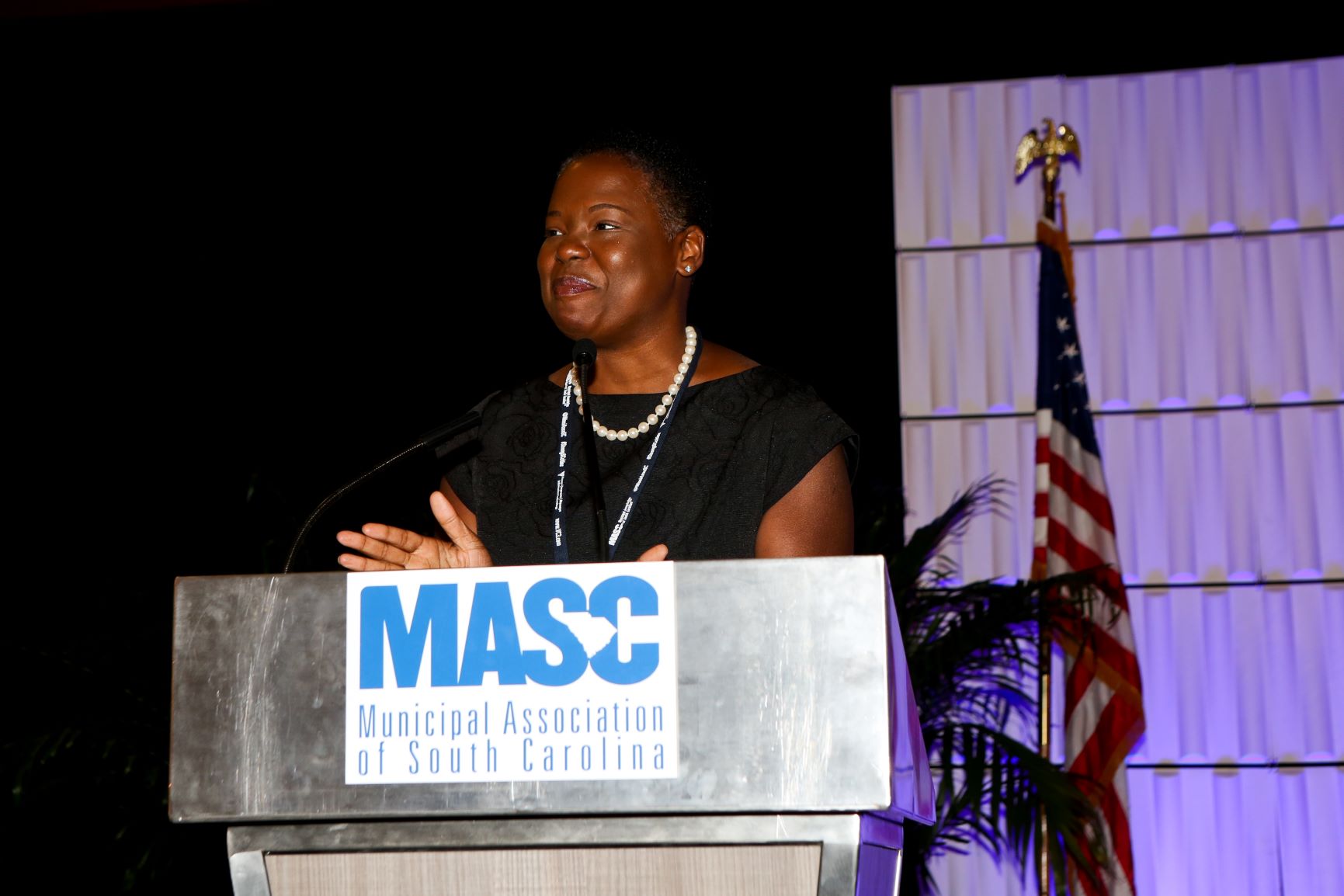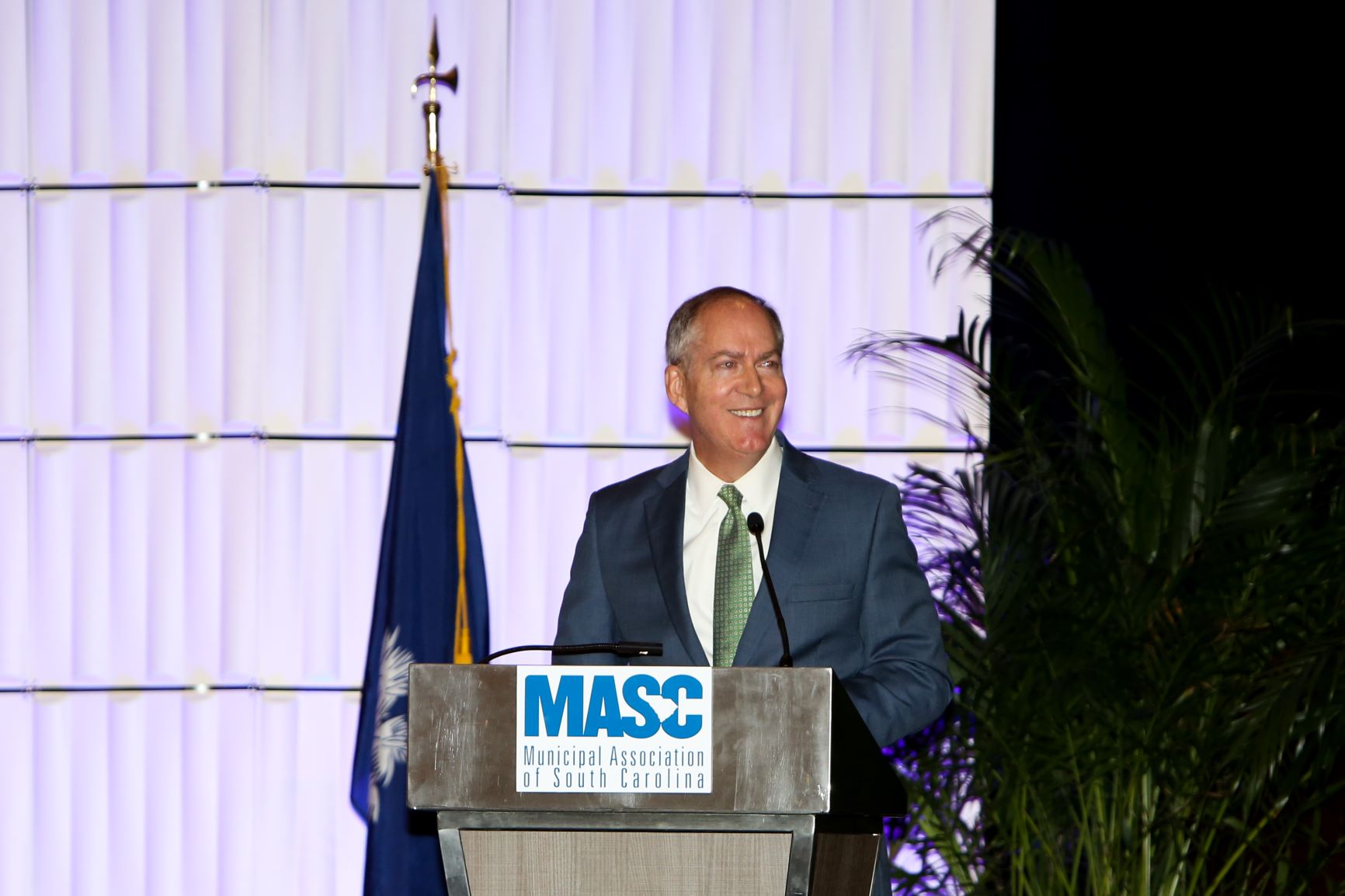Representatives of 132 of the state’s cities and towns gathered in Greenville July 18 – 21 for the Municipal Association of South Carolina’s Annual Meeting, and they elected Mauldin Mayor Dennis Raines as the next president of the board of directors.
Raines said he looked forward to leading the board in the coming year.
“Strong cities and towns are critical to our state. We all know that, we just have to make sure everyone else knows that,” he said. “In Mauldin we strive to be a healthy, vibrant and growth-minded city. I want that for all 271 cities, and working together, I know we can do that.”


Outgoing Municipal Association President Octavia Williams-Blake, councilmember from Florence, and Greenville Mayor Knox White spoke at the Annual Meeting in July.
Outgoing board President Octavia Williams-Blake, councilmember from Florence, drew attention to the Association’s advocacy success at the General Assembly in the past session. Two of the Advocacy Initiatives — improving predictability in the amount of Local Government Fund revenue cities receive and creating recurring state budget funding for the SC Criminal Justice Academy — were passed into law. Another initiative, creating greater flexibility in the ways cities can use hospitality and accommodations tax revenue for flooding and drainage, was passed by the Senate and awaits action by the House in 2020.
Williams-Blake also highlighted strong graduation rates for the Municipal Elected Officials Institute of Government and membership growth for the Main Street South Carolina downtown revitalization assistance program after changes were made to membership levels. She offered thanks for the time she spent as president.
“We are those leaders that our residents look to for support, for help, for guidance and the hope of a positive future. We are those leaders that statewide officials depend on to attract new business, professional sports teams and new industry,” she said.
Eric Budds, interim executive director for the Municipal Association, called for all city officials to read the Association’s Annual Report so they may better understand and take advantage of the Association’s resources. He also echoed Williams-Blake’s words on the need for all officials to be actively engaged in the legislative process and willing to contact their legislators with information on how bills can help or hurt cities.
“Using this approach, together we can provide the extra surge that’s necessary to pass favorable bills and stop bad legislation,” he said.
Greenville Mayor Knox White gave the keynote address, offering a look at many decades worth of downtown revitalization work. He described the city’s experiences with what he called the “magic of mixed use.”
“Getting residential [developments], you can’t scream it from the rooftops enough, even if it’s an apartment complex nearby. Just having some people bumping against the urban core is so critically important. It brings your retail. It helps your office development.”
He recounted the dramatic results of removing the highway overpass from the waterfall on the Reedy River and the creation of Falls Park, but he also connected it with the new effort to build a much larger facility, Unity Park, further up the river with nearby city-donated properties to be used for affordable housing.
In the 1930s, the area was the site of the city’s only park for black residents, he said. At that time, the park had been built over by a baseball stadium and then had surrounding city-owned land used for everything from vehicle storage to a jail and police shooting range.
White recounted the efforts of a community leader, Elias Holloway, to restore the park in the 1930s, bringing together residents and business leaders to push for the change.
“There was a lot of momentum to right that wrong at that time, but something called World War II intervened, and the whole idea seemed to get lost. That’s where we are today. It got lost until 80 years later, we’re building the park.”
Find presentation material for the Annual Meeting online.
